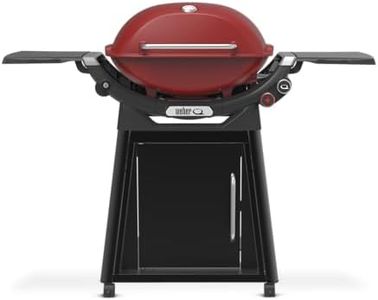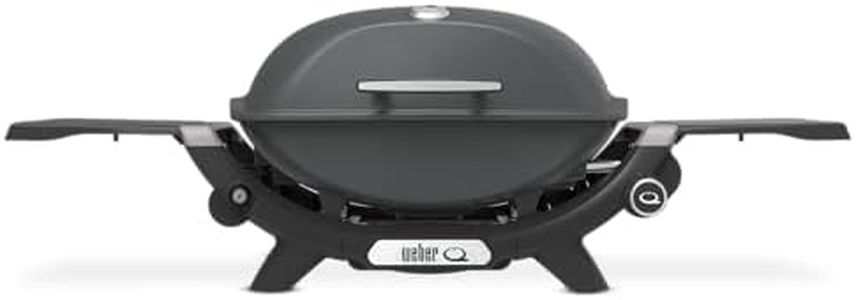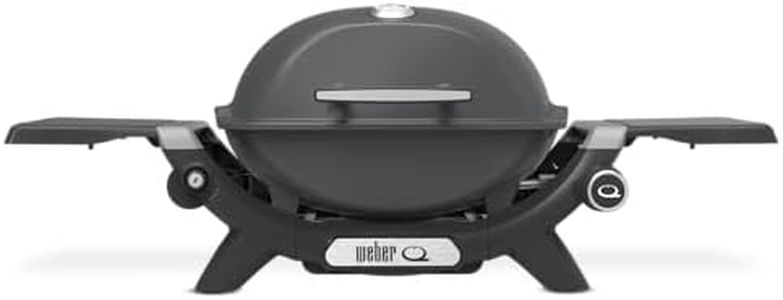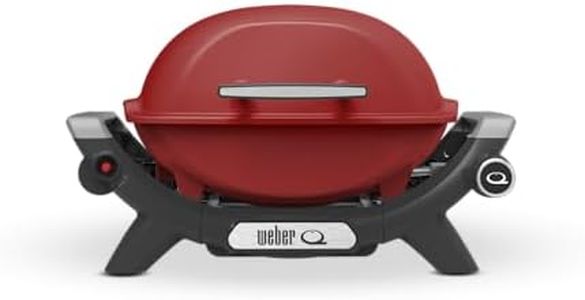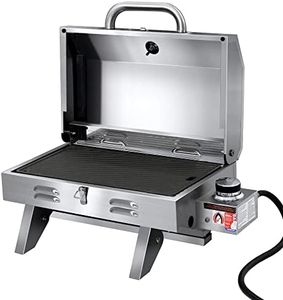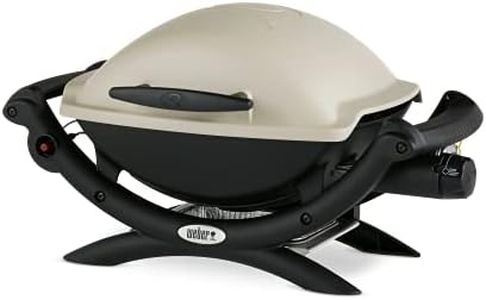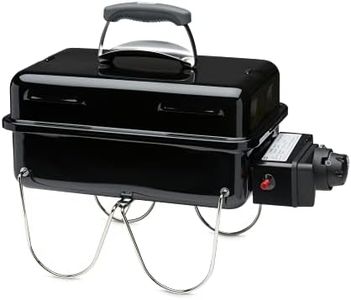We Use CookiesWe use cookies to enhance the security, performance,
functionality and for analytical and promotional activities. By continuing to browse this site you
are agreeing to our privacy policy
9 Best Inexpensive Gas Grills
From leading brands and best sellers available on the web.By clicking on a link to a third party's website, log data is shared with that third party.
Buying Guide for the Best Inexpensive Gas Grills
Choosing an inexpensive gas grill can be a great way to enjoy outdoor cooking without spending a lot. The key is to focus on the features that truly matter for your grilling habits. Take a moment to think about how often you’ll use it, the number of people you usually cook for, and the space you have available. The main goal is to find a grill that fits your actual needs and is reliable, safe, and efficient, even if it doesn’t have every fancy feature.Cooking Area SizeThe cooking area is the part of the grill where you actually place the food to cook. It's usually measured in square inches. This spec is important because it determines how much food you can grill at one time. Small grills, with under 300 square inches, are ideal for singles or couples. Medium grills, around 300-500 square inches, suit most families. Large grills, above 500 square inches, are good for groups or parties. Think about how many people you generally cook for; if it’s just for you or your partner, a smaller grill is fine. If you often host friends or family, a larger area makes meal prep smoother.
Number of BurnersBurners generate heat and allow for temperature control across your grill. More burners mean more control and space for different heat zones, which is handy for cooking various foods at once. Simple grills have one burner and are best for basic grilling needs, while two or three burners provide better flexibility and are great for families. Four or more burners are best for advanced users or those who grill for crowds. Choose the number that matches your cooking style—if you want to sear steaks on one side and slow-cook veggies on another, go for more burners.
BTU RatingBTU (British Thermal Unit) measures the total heat output of your grill. A higher BTU means more heating power, but bigger isn’t always better if the grill can’t retain heat efficiently. Small grills may have around 8,000-15,000 BTUs, medium ones go from 20,000-40,000 BTUs, and large grills can be higher. For inexpensive grills, you want a BTU that fits the size of the grill, not just the biggest number. Balance this number with cooking area size; too many BTUs on a small grill may waste energy.
Construction MaterialThe grill’s material affects its durability and heat retention. Cheaper grills might use thinner steel that can rust or warp, while better ones use stainless steel or coated cast iron. Powder-coated steel or porcelain-enameled parts offer an affordable middle ground that resists rust and cleans easily. Pick a grill with sturdy construction for safety and long life, focusing on rust resistance if you’ll keep it outdoors.
Ignition SystemThe ignition system starts the grill. Options include push-button, rotary, and electronic systems. Reliable ignition helps you avoid frustration or accidents. Simpler systems (like push-buttons) are common on budget grills and can work fine, but electronic ignitions light reliably with very little effort. If you value easy starting or grill often, favor reliable or backup ignition.
PortabilityPortability refers to how easy it is to move your grill around. Some grills have wheels or are lightweight, making them simple to roll or carry to your patio, tailgate, or camping spot. If you need to move the grill often or store it away after use, look for features like wheels or folding legs. If the grill will stay in one spot, this may not matter as much.
Grate MaterialThe cooking grate holds your food and impacts grilling performance. Common materials include porcelain-coated steel (easy to clean), cast iron (great for searing and heat retention), and stainless steel (durable and rust-resistant). Cast iron requires maintenance to prevent rust, while porcelain and stainless tend to be lower maintenance. Choose based on how hands-on you want to be with cleaning and care.
